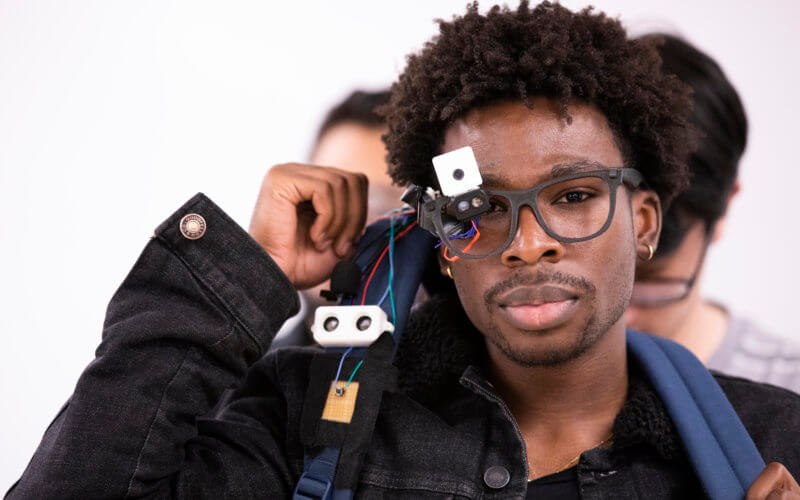
To help people with visual impairments gain more independence, Cal State Fullerton computer engineering students developed assistive glasses, a hands-free wearable technology device. The glasses can help people with visual impairments detect and identify often-used objects — something a guide dog cannot always do.
The glasses use smart technologies, including artificial intelligence, machine learning, voice recognition and a bone conduction speaker, which leaves the ear canal open, unlike traditional headphones. The speakers are close to the ear and in contact with the head to amplify noise by vibrating directly on the bones.
Class of 2023 graduates Jeremy Chang, Abel Desoto and Rodney Nobles worked closely with Juanita Herrera, lead assistive technology advocate at the Dayle McIntosh Center for the Disabled in Anaheim to develop the prototype. Herrera was born with congenital glaucoma and gradually lost her eyesight.
The project emerged as part of an ongoing partnership between Sagil James, associate professor of mechanical engineering, and the Dayle McIntosh Center.
Kiran George, professor of computer engineering and faculty adviser for the project, said that the students’ involvement in creating projects fosters their personal growth, skill development and social impact to foster a more inclusive society.
George said: “Students bring fresh perspectives and ideas to help individuals with disabilities, which can lead to innovative thinking, creative problem-solving and groundbreaking solutions.
“Students embrace failure as a learning opportunity, which allows them to make iterative improvements to their designs.”
Read more about George and the students’ innovation.